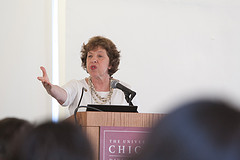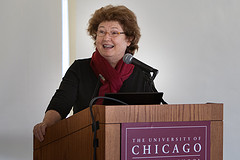Jorge Viana
Forester, former Governor of Acre - Rio Branco, AC
The Challenge of Sustainable Development in the Amazon with the Involvement of Local Populations
I would like to establish a simple sequence of facts. A sequence that would help us evaluate the progress we have made so far, and that would prepare us for the next steps we must take, both for public management and for the socio-environmental movement.
The inception of a predatory development model, with high emission of carbon dioxide and huge environmental degradation, did not emerge only through the spontaneous action of market and society. That model also depended on the State’s guidance, and on the support of public policies. This point is illustrated, for instance, by the fiscal incentives that grounded the recent occupation of the Amazon. These incentives created the social and environmental problems that we see.
In spite of these problems—perhaps because of them—the most affected sectors of society reacted to them. At the beginning it was just resistance. But, in a short time span, the movements that were motivated by the forest populations grew active, defined new concepts and a new developmental model. These movements demanded popular participation, valorization of their culture, and a sustainable forest economy.
Despite great sacrifice, the movement won significant victories, and shifted paradigms in the public policy for the Amazon. Regional and federal governments incorporated sustainability concepts. Environment legislation was improved. Above all, development programs reduced the emphasis on the importance of land occupation, and began to consider the use of natural resources. Although these changes are in their initial stages, their results are clearly visible: less negative impacts (deforestation, CO2 emissions, social problems, etc.) and more positive impacts (conservation units, more solid laws and institutions, growth of the forest economy, etc.).
Today, the State and the socio-environmental movements face new challenges, and need to address the new realities of the world stage. The units of conservation may serve as reference across the world, both for carbon sequestration, which avoids deforestation, and for the establishment of a new sustainable economy. It is possible to raise significantly the level of social indicators with public policies based on the participation of populations. It is possible to think of the implementation of infrastructure in the Amazon based on new paradigms. It is possible—and urgent—to obtain and extraordinary development in science, capable of providing standards for a new moment in human civilization.
Remaking the trajectory and changes that we have already achieved is a step that makes us define the steps we will take in the next few years, when humanity’s destiny will be decided.
Jorge Viana is a forester. He was mayor of Rio Branco from 1992 to 1996. From 1999 to 2006 he was the governor of the state of Acre, for the Workers Party (PT). Mr. Viana worked with Chico Mendes towards a sustainable development model for the Amazon, a model that would value the region’s traditional populations, and promote the rational and sustainable use of the forest. Both of his terms were awarded prizes by the Ford Foundation and by “Fundação Getúlio Vargas.” Mr. Viana received the prize Leader for the New Millennium, in 1999, awarded by Times magazine and by CNN. In 2003, the World Wildlife Foundation awarded him the prize Gift to the Earth, in London.




